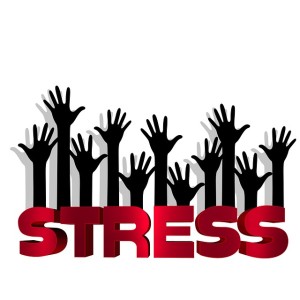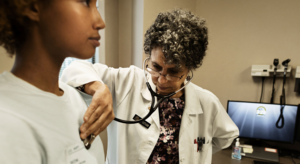You know you’re a nerd when it’s Friday night and you just finished watching a DVD on physician burnout.
Yes, that’s me. I’ll admit it. And it’s not the only one of its kind in my DVD collection (not sure if I should be revealing this).
Lately in my blogs I have been writing about physician burnout; what it is, what causes it, research on spit and burnout, etc. Enough. One can get burned out on burnout. Time to start talking about how to prevent the problem.
The DVD that consumed my Friday evening was, “Resilient Physicians and Medical Organizations”, featuring psychologist and author, Wayne Sotile, PhD.
Dr. Sotile, who has helped thousands of physicians and their families cope with stress and burnout, reveals what he has found to be a key factor in reducing the risk of burnout:
Relationships – mutually enhancing, positive relationships.
Having a strong family support system, a close circle of friends, harmonious work relationships, and strong community ties, all contribute to an individual’s resiliency in the face of high work demands.
While this seems so obvious – naturally we are happier and more fulfilled when our relationships are strong, the catch is that when we under a lot of stress, our relationships tend to suffer and this can start a downward spiral.
When I reflect on my own career, the time when I was coping the least well with stress was also when my work and personal relationships were sub-optimal.
Knowing that strong, healthy relationships can be protective against burnout, provides an extra incentive to make this a priority in a one’s life.
So maintaining and nurturing strong relationships is key in preventing burnout. What else helps?
Establish Priorities – take time to step back from your busy schedule and look at your life as a whole. What is going well? What do you want to change? What is the relationship between money and time? Ask yourself, “If nothing changes, how will I feel in 10 years? What regrets would I have?”
Self-Care – I know to many this sounds self-indulgent and it’s not what we’re taught, but in order to keep giving to others, you have to replenish yourself. How are you doing with regular exercize, sleep, eating healthy, and personal time? Do you have your own physician? Taking good care of yourself is not a luxury, but a necessity. Here is a link for an upcoming renewal retreat for doctors through the Osler Symposia, May 14-20th.
Protect Your Time – Doctors often have a hard time saying “No.” Your role is to help others and there is so much need out there, as well as social obligations. When your time is requested, instead of immediately committing, you can pause to evaluate your priorities and see if this is a, “Yes! Yes!” as opposed to a, “Well, I suppose I can.”
Find Creative Outlets – after the steep learning curve of training, practice can become fairly routine. Developing new interests or skills can help, such as taking an art or music class, teaching, writing, or participating in a medical mission. A dermatologist I know started teaching a class on skin conditions in popular films, and found a wonderful way to add richness to his career.
Seek Out Emotional Support – Doctors traditionally keep their burdens to themselves, and practicing medicine can be emotionally traumatic. The benefits of being able to share one’s experience in a safe environment cannot be over-estimated. Talking with a trusted spouse, friend, counselor or peer mentor can help. Some cities have physician support groups, or you can start your own or join a confidential online group, through The Heart of Medicine.
Explore Work Options – Do you want to reduce your hours? Stop doing OB or surgery? Take on an administrative role? Get involved in the EHR initiative in your hospital? If you are feeling stagnant, it may be worthwhile to consider redesigning your job. What might breathe new life into your career?
Now, you maybe saying, “I’ve tried to go part-time and my organization says it’s not cost effective!” Or, “Unless the system changes, no amount of touchy-feely unburdening or after hours hobbies is going to do me any good!”
I hear you. Preventing burnout is going to take a village, and a significant part of that village is the healthcare system.
My next blog will be on the role of the healthcare system in helping to prevent burnout.
Latest Posts
Find what you're looking for:
Popular Categories:
Career Change | Career Enhancement | Job Search | Personal Development























